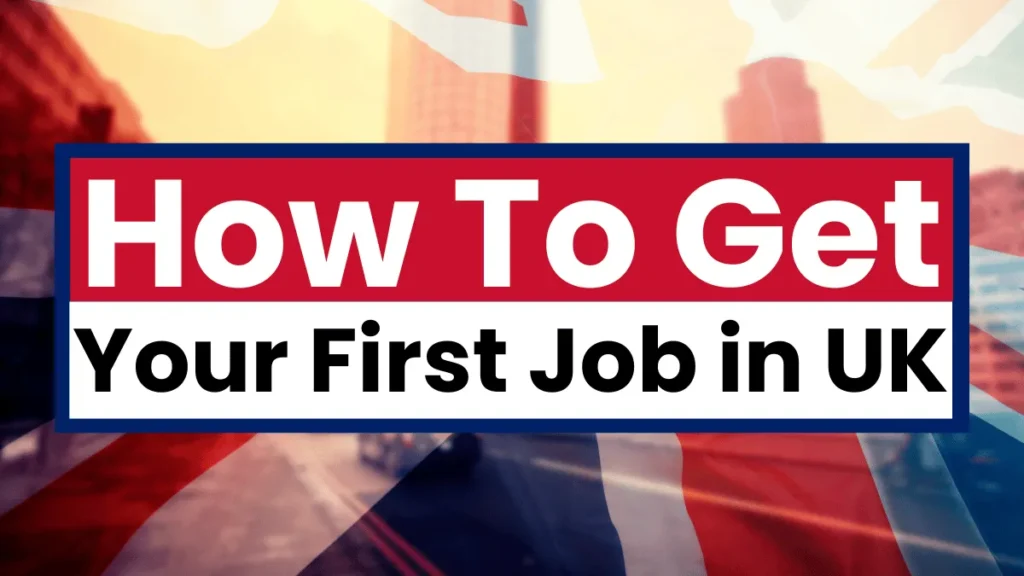
Securing your first role in the UK can feel daunting—especially with evolving visa rules, a competitive job market, and high expectations from employers. Whether you’re a recent graduate, an overseas applicant, or switching careers, this 2025 guide will help you land your first UK job by covering:
- Top job search strategies and best job boards
- Crafting an impactful CV and cover letter
- Navigating work visas and eligibility
- Mastering the interview process
- Leveraging networking and professional communities
Understand the 2025 UK Job Market
- High‑growth sectors: Tech, green energy, healthcare, financial services, creative industries.
- Skills in demand: Data analytics, cybersecurity, AI/ML, digital marketing, nursing, and engineering.
- Regional hubs: London remains a finance and tech powerhouse; Manchester, Edinburgh, and Birmingham also offer vibrant opportunities.
Tip: Use the UK Government’s Job Market Insights for up‑to‑date vacancy trends.
Visa & Eligibility Requirements
Right to Work
- British/Irish Citizens & Settled Status – No restrictions.
- Skilled Worker Visa (Subclass 482/SC 2) – For sponsored roles on the Shortage Occupation List.
- High Potential Individual Visa – Graduates from top‑ranked universities (no job offer needed).
- Graduate Route – Post‑study work permit for 2–3 years (for international students).
Key Steps
- Check your eligibility: Visit the UK Visas & Immigration site.
- Secure Sponsorship: For most work visas, you need a licensed sponsor and a job offer.
- Prepare Documentation: Passport, CAS/CoS, proof of funds, English test results (if required).
Crafting Your CV & Cover Letter
CV Best Practices
- Length: 2 pages maximum for graduates; 1 page can suffice for entry roles.
- Structure:
- Contact Details (name, UK phone number, professional email)
- Personal Statement (2–3 lines highlighting your career goal)
- Education (reverse chronological)
- Relevant Experience (internships, part‑time work, volunteer)
- Key Skills (hard and soft skills tailored to the job ad)
- Achievements & Projects (quantify results—“Increased social media engagement by 30%”)
- Interests (brief, relevant to company culture)
Writing a Winning Cover Letter
- Address the recruiter by name if possible.
- Hook in the first paragraph: Explain why you love the company/role.
- Match your skills to the job description with specific examples.
- Close with a call to action: Express enthusiasm for an interview.
Internal Link Suggestion: Link to your website’s CV templates or career advice page.
Also Check: Luxembourg Employment Visa Process July 2025: Application Process
Top Job Search Channels
| Channel | Description |
|---|---|
| Networking + job postings | |
| Indeed UK | Aggregator with millions of listings |
| Totaljobs & Reed | Popular UK‑focused job boards |
| Company Websites | Direct applications for target employers |
| Graduate Schemes | Gradcracker for STEM roles |
Tip: Set up job alerts on each platform to apply within 24 hours of posting.
Networking & Professional Growth
- Join professional bodies: e.g., Chartered Institute of Marketing (CIM), British Computer Society (BCS).
- Attend industry events: Meetups, hackathons, webinars, and career fairs.
- Leverage alumni networks: University career services and alumni groups.
- Informational interviews: Request 20‑minute chats with professionals on LinkedIn.
Acing the Interview
Preparation
- Research the company: Mission, values, recent news.
- STAR technique: Practice Situation, Task, Action, Result for behavioural questions.
- Mock interviews: With peers or career coaches.
Common Questions
- “Tell me about yourself.”
- “Why do you want to work here?”
- “Describe a time you overcame a challenge.”
- Technical questions relevant to the role.
Post‑Interview
- Send a thank‑you email within 24 hours.
- Mention one key takeaway or something you enjoyed discussing.
Continuous Learning & Upskilling
- Online courses: Coursera, Udemy, LinkedIn Learning for in‑demand skills.
- Certifications: Google Analytics, AWS, PRINCE2, CIPD—industry‑recognized.
- Language skills: Improve English or learn a second language (e.g., French for finance roles).
FAQs
Q: How long does it take to find a first job?
A: On average, 3–6 months—depending on field and market demand.
Q: Can I study and work part-time?
A: With a Student Visa, you can work up to 20 hours per week during term.
Q: Are unpaid internships legal?
A: Only if they comply with UK employment law; visa holders must check restrictions.
Conclusion
Landing your first job in the UK in 2025 requires strategic planning, polished applications, and proactive networking. By understanding the visa landscape, crafting a standout CV, leveraging top job boards, and mastering the interview process, you’ll position yourself for success.
